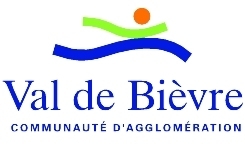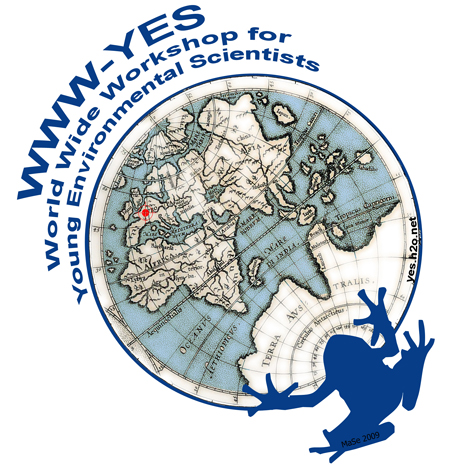





|
World Wide Workshop for Young Environmental Scientists (WWW-YES)

Presentation
Growing population worldwide, economic development and increasing degradation of freshwater resources make the actual management of urban waters unsustainable for the world of tomorrow. Competition between water users, inadequate technologies or inappropriate managerial approaches makes better and adequate capacity building necessary. Furthermore, due to academic financial restrictions, PhD students are often limited in their ability to present and discuss their ongoing research projects at an international level and suffer from poor experience in using English as the common language for all international science exchange.
The LEESU research group and the H2o Association organise in the framework of the "University for water and sustainable development" of the Val-de-Marne County (South-East of Paris) an annual doctoral workshop dedicated to young environmental scientists, the World Wide Workshop for Young Environmental Scientists (WWW-YES).
Since the creation of the workshop in 2002, the thematic outline is "Urban waters, resource or risk", emphasizing the necessity of the integration of human activity in the natural environment to enable sustainable development of urban space. The workshop is multidisciplinary joining natural (urban hydrology, chemistry, ecology, health sciences...) and social sciences (architecture, management, decision making...), to improve trans-disciplinary discussions and social commitment of the scientific research in the field of integrated water management.
This workshop is characterized by a non formal work environment stimulating scientific creativity, exchange and discussion between participants, which number is limited to 25. For each participant, both papers and oral presentations especially focus on:
- The scientific context of the research subject,
- The research questions that are expected to be answered during the PhD preparation, together with their environmental justification,
- The field and/or lab and/or model methodologies that are currently or will be used, together with their justification for addressing the questions presented before,
- One or two major results obtained so far,
- The planned research activity till the end of the PhD (or after its termination, in the case of a PhD which is already finished),
- The significance and limitations of these methodologies for developing countries.
Indeed this workshop is not mostly dedicated to present original results (the purpose of all conventional scientific conferences), but to present, discuss and justify methodologies selected by each PhD student. Furthermore, taking into account the large field of "urban water", papers and presentations are well illustrated for being well understood. Finally, taking into account the large participation of students issued from developing countries, each paper and oral presentation should also include some discussion of the benefits and limitations of such methodologies within developing countries, where most up-to-date technology is often not available.
The five days of the workshop are dedicated :
- To the presentation, discussion and assessment of the individual research projects of each participant and
- To the building-up of international environmental research projects.
- A half-day of the workshop is dedicated to a technical visit of urban water management equipments in the Val de Marne county.
- An evening session is dedicated to the public presentation and discussion of an international survey, conducted by the workshop participants, on drinking water resource, production and distribution conditions in selected towns.
In conclusion the capacity building objectives of the WWW-YES workshop are focussed on 8 major tasks of an environmental scientist who wishes to reach an international expertise level:
- Ability to present, discuss and build collaborations using English as a communication language,
- Prepare a well formatted and structured scientific paper according to International Water Association guidelines,
- Prepare a review report on a paper submitted for publication in an international journal and make general comments as well as specific questions to the author(s),
- Chair a scientific presentation and discussion on a topic not closely related to your own one, i.e. moderate the discussion, find justified questions if necessary, control the discussion time,
- Build an international work group including both nature and human scientists, working efficiently on a common goal,
- Build a collaborative research project according to an international call and to limited time and strict format constrains and justify it for an international expert panel,
- Conduct a scientific survey on a given city and collect both technical, economical and social data, the 3 major pillars of a sustainable development approach,
- Present and discuss environmental or sustainable development issues to/with an non specialised public made of elected representatives and local citizens.
Since its start in 2002, 211 students, issued from 53 countries spread over all continents, have participated to its 12 editions: a table of these participants is available either in alphabetical order or by edition group on the Web site of this workshop.
Furthermore, it has been suggested to all participants of previous WWW-YES editions, to build a free profile on Linked In and to join the ’Urban water’ group of former WWW-YES participants, requesting such registration to Daniel Thevenot moderator of this group. Through this professionnal network, discussions, common news, announcements or positions request/available may be shared by all group members.
Available proceedings on HAL Open Source site
- 13th edition: 2 - 7 June 2013 at Arcueil, France
- 12th edition: 21 - 25 May 2012 at Arcueil, France
- 11th edition: 5 - 10 June 2011 at Arcueil, France
- 10th edition: 31 May - 4 June 2010 at Arcueil, France
- 9th edition: 24 - 28 October 2009 at Belo Horizonte, Minas Gerais, Brazil
- 8th edition: 2 - 5 June 2009 at Arcueil, France
- 7th edition: 13 - 16 May 2008 at Créteil, France
- 6th edition: 24 - 27 April 2007 at Vitry sur Seine, France
- 5th edition: 9 - 12 May 2006 at Vitry sur Seine, France
Organisation
LEESU Laboratoire Eau, Environnement et Systèmes Urbains / Water, Environment and Urban systems centre of research shared by the École des Ponts ParisTech (ENPC), Université Paris-Est Créteil (UPEC) and AgroParisTech. It is classified as UMR MA 102 by the French Ministry of High Education and Research.
University Paris-Est Créteil (UPEC)
Faculty of Science and Technology,
61 Avenue du Général de Gaulle,
94010 Créteil Cedex, France
Phone: +33-1 45 17 16 31
Fax: +33-1 45 17 16 27
|
|
Ecole des Ponts ParisTech (ENPC)
6-8 Avenue Blaise Pascal,
Cité Descartes, Champs sur Marne,
77455 Marne la Vallée Cedex 2, France
Phone: +33-1 64 15 36 25
Fax: +33-1 64 15 37 64 |
Local organisation: Daniel Thévenot, Martin Seidl and Association H2o Paris.
Inquiries on this workshop: www-yes(AT)leesu.enpc.fr
Scientific committee
- Daniel THEVENOT - Universite Paris-Est, LEESU - France
- Bruno TASSIN - Universite Paris-Est, LEESU- France
- Jean Claude DEUTSCH - Universite Paris-Est, LEESU - France
- Jose-Frederic DEROUBAIX - Universite Paris-Est, LEESU - France
- Bruno LEMAIRE - Agro ParisTech, LEESU, France
- Jean-Marie MOUCHEL – P. and M. Curie University, SISYPHE - France
- Nilo NASCIMENTO - UFMG EHR - Brazil
- Martin SEIDL - UFMG EHR Brazil & Universite Paris-Est, LEESU - France
- Jean MORIN - Environnement Canada
- Sani LAOUALI - UAM Niamey - Niger
|






